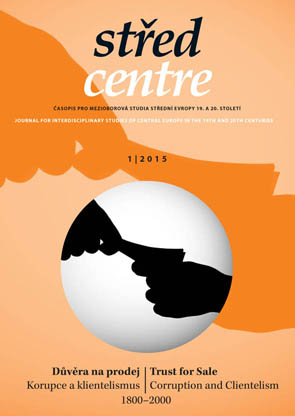The Ways of Enrichment and its Interpretations in Hungarian Politics after the Austro-Hungarian Compromise of 1867
The Ways of Enrichment and its Interpretations in Hungarian Politics after the Austro-Hungarian Compromise of 1867
Author(s): András CiegerSubject(s): History
Published by: AV ČR - Akademie věd České republiky - Masarykův ústav
Keywords: enrichment; corruption; changing norms (legal; political and moral); discourse; party politics; Hungary; Compromise Era
Summary/Abstract: The principal questions of this case study concern the birth of a new political regime, the first years of the Austro-Hungarian Compromise: which legal, political and moral norms regulated the enrichment of politicians and where contemporary discourse posited the limits of corruption? The article answers these questions through the analysis of the cases of some Hungarian politicians. The author explores the varied sources available about the incriminating affairs: archival materials, personal documents, and newspapers, together with a number of literary representations of the problem. The historical data serve to demonstrate that corruption is an elastic notion. Studying the discourse of corruption highlights that neither the seriousness of the deed nor the truth of the accusations was important, in fact political situation alone determined if the politicians would be blackened or not. The Compromise Era offers a number of examples of the establishment of this new form of political infi ghting and its first successful application.
Journal: Střed. Časopis pro mezioborová studia Střední Evropy 19. a 20. století
- Issue Year: 7/2015
- Issue No: 1
- Page Range: 34-65
- Page Count: 32

